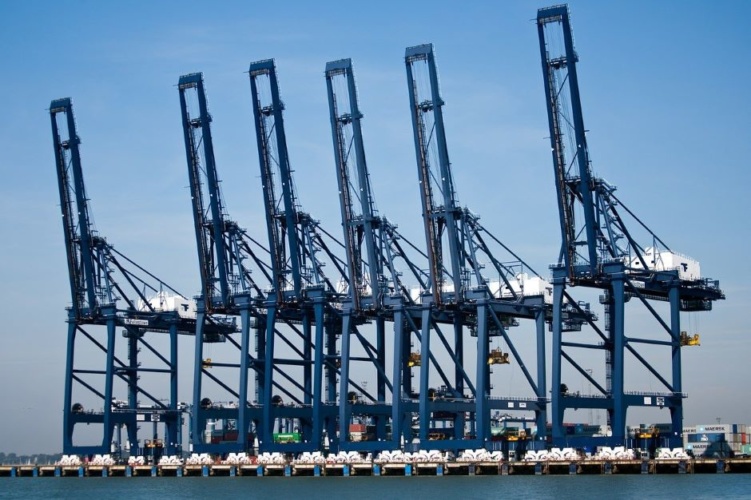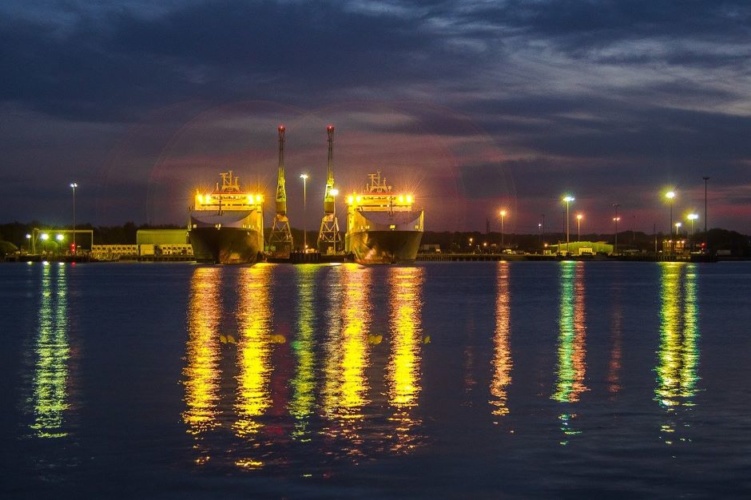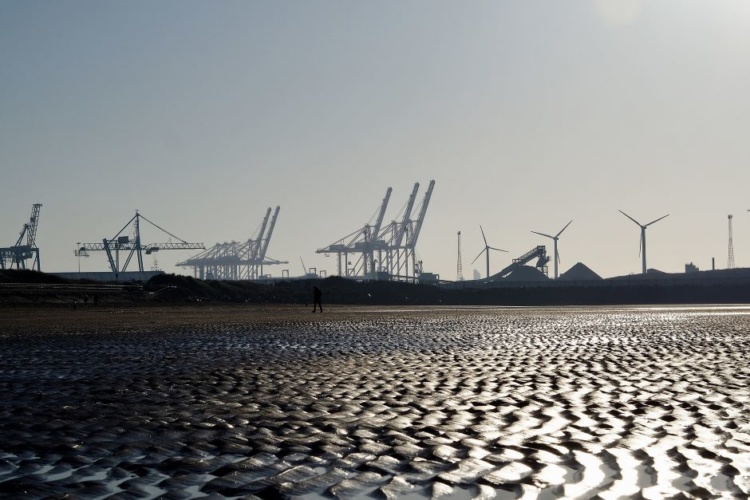The Engineer spoke to Steve Treagust, VP, Industries Programmes at IFS, and Peter Taylor, managing partner at Paris Smith LLP and chair of Southampton Chamber of Commerce, about the potential for Freeports to boost the UK’s post-Brexit economy.
In what ways can the new Freeports demonstrate robust local development with maximum regional and national impact?
PT: The Government’s objectives of the new Freeports across the country are threefold:
- To establish Freeports as national hubs for global trade
- To promote regeneration and levelling up
- To create hotbeds of innovation
The spread of the new Freeports across the country and the ripple effect from each of them will maximise the benefits across the nation. That said, each region in which a Freeport is to be established should not treat the Freeport area as a silver bullet to address all these objectives and to create a lasting legacy for thriving regional economies. It’s vital that they are part of a region’s wider strategy and narrative. For instance, the Solent Freeport is ideally situated to support the global aspirations of the region and in particular, Southampton as a global destination port city.
CLICK FOR MORE BREXIT COVERAGE
There must be a shared sense of ambition across the public, private and third sector in the areas in which the Freeports sit in order to optimise the outcomes and benefits from the relevant Freeports. This ambition could translate as an increase in manufacturing along with associated research and development, trade through the Freeport, attracting external investment (from overseas or within the UK), reduction of social deprivation and unemployment, job creation, innovation hubs aimed at sustainable and carbon reducing solutions, greater economic activity and increased productivity. Productivity can and will be driven by greater manufacturing opportunities.
Being able to import tariff free components to a Freeport zone and then manufacturing a product from such components either for domestic use or export will deliver commercial and financial advantages. The point should not be overlooked that the tariffs for component parts are often higher than the tariffs applicable to the manufactured product that incorporate such parts. Tariffs are only payable when the goods leave the Freeport area, to the domestic or export market. Tariff savings for manufacturers across the world who have been operating in such Freeport Zones have been significant.
Each Freeport region should have measurable goals and outcomes such as enhancing productivity, increasing wage potential and narrowing the wage gap, addressing the levelling up issues. Levelling up is not a north /south issue. There are areas of social deprivation in communities that are perceived as being affluent and self-supporting.
ST: A diverse network of freeports throughout the country should benefit local communities by providing skilled jobs closer to these hubs and outside of cities - supporting the government’s work to ‘level up’ the UK. The investment in these freeport operations will also have impacts throughout the surrounding area and supply chains as businesses re-architect themselves to take advantage of the tariff free zones. Additionally, bringing labour and operations closer to these freeports reduces the amount of travel required in the value chain, and therefore emissions, reducing the carbon footprint of the goods flowing through them.

Is there a danger that Freeports will create pockets of excellence to the detriment of the rest of the UK?
PT: There is definitely a risk that Freeports will become of limited value if they’re not integrated into the wider strategy for the region in which they operate.. There is the prospect of businesses that surround the Freeport zone benefitting from increased economic activity and the people who will be attracted to work and live near the Freeport zones. The benefits flowing from customs and tax advantages of Freeport status should be considered as a benefit to the region rather than the Freeport zone alone.
The opportunities to grow a stronger manufacturing base in the UK and to seize the advantages for such businesses sited in the Freeport zones are compelling. Not only will there be infrastructure projects and ancillary services to support the businesses sitting within the Freeport zones, but these manufacturing and trade hubs will provide job opportunities across the regions, with the potential to create thriving economies well beyond the perimeters of the Freeport zones.
ST: One person's danger is another's opportunity. Overall, this is an opportunity to increase UK productivity by having modern and efficient centres of excellence built around ESG (Environmental, Social, and Governance) considerations. As part of the government’s levelling up agenda, these freeports are intended to redress current imbalances rather than compound existing issues. Further, the business disruption associated with moving operations to a freeport make it unlikely we’ll see highly complex manufacturing operations move to these zones en-masse. The movement is therefore more likely to come from rather smaller, less-established businesses and simpler operations - such as packhouses for food and beverage producers. The economic and social impact therefore is likely to be felt over the longer-term, providing ample opportunity to monitor and proactively address any detrimental effect.

What should a Freeport’s ecosystem look like?
ST: Establishing new freeports provides an opportunity to build a more technology-based ecosystem and reap the investment benefits associated with that. The enhanced allowance for building and investment in plant and machinery - as well as the tariff free trading - are incentives that are necessary to encourage businesses to take up the opportunity, and catalyse the type of changes the government wants to see. However, these need to be supplemented by other linked incentives for the communities in which the freeports are located in order to maximise the wider stakeholder benefits, and not just shareholder benefits. In order to provide the optimal chance of success, there needs to be consistent and considered investment and attention paid to the transport links, local housing and communications technology, such as 5G and ultra-fast networking, that serve freeports. This will promote wider developments around freeport zones and could see them become tight-knit communities with optimised infrastructure and enhanced social amenities. Clearly, none of this will happen overnight, but continued investment can help us get there.
PT: There is a mix of elements that need to come together to secure the success for each Freeport. In the main, the Freeports announced are to be located in existing UK ports. This plays to the strength of the nation, its island status and strong maritime tradition.
Take Southampton. Ranked as the second largest deep-sea port in the country, the largest multi-functional port (a mix of cruise ships and containers) and the largest export port in the UK it is sheltered from the worst of the weather by the Isle of Wight and its position in Southampton Water. The Solent operates as the UK’s most significant combined and major port operation with more than £77.5bn worth of goods moving through its ports each year, incorporating container, ferry, bulk, automotive, and cruise operations. It is a significant part of the national trading capability.
As with many of the Freeport areas, Southampton is surrounded by both great talent (in particular two outstanding universities with exceptional research and development capabilities) and also communities of social deprivation. Southampton is the 55th most deprived local authority in England (out of 317) and 45 per cent of the city’s population live in neighbourhoods that are in the 30 per cent most deprived nationally.

The ecosystem of the successful Freeports should have a dynamic mix of manufacturing and development businesses, storage and logistics facilities along with the port services to take full advantage of the opportunities of the Freeport status. There will be a need for professional and administrative support services as well as other businesses tailored to meet the day-to-day requirements of all who work in the Freeport Zones.
Security will also be a key service in a Freeport zone. This will be necessary not only to preserve the integrity of all that takes place within the zone (and to ensure regulatory compliance), but also to ensure that businesses’ products, innovation hubs and research and development facilities remain safe, secure and are not breached.
Connectivity will be extremely important, both with the Freeport area and externally. It’s critical that the Freeport remains an integral part of the community and region in which it sits.
A Freeport should not become an island sitting alone. It should be a force for increased productivity, manufacturing of new products, job creation for the surrounding area and attracting new investment (rather than simply moving existing committed investment).
Manufacturers/engineering companies setting up in Freeports will need a skilled workforce, so what must they do to ensure a steady stream of talent?
ST: Speak to any industry for long enough and you will hear about their skills gap. Freeports are no different. The difficulties in attracting staff may be a problem initially, however in time they would provide a mini “world” where everything an employee requires is catered for - local amenities, transport, and connectivity chief among them. A bit like an industrial park of today, or the model villages of the 18th century.
PT: Building strong relationships with educational establishments in the region would be great place to start. Look to the schools, colleges and universities for the future talent. Universities are excellent sources of research and development skills and resource. One would expect to see strong links developing between the engineering and design schools in universities and the manufacturing businesses in the Freeports.
The manufacturing sector of the economy accounts for a significant element of the country’s research and development output. It’s apparent that manufacturers prefer a research and development facility close by. This can be seen in other world economies, where manufacturing is a larger sector than the UK, such as China and the USA. Developing that research and development capability should be a key focus for manufacturers and engineering companies looking to base themselves with Freeport areas.
Businesses need to actively communicate their sense of purpose, the excitement and shared sense of teamwork. Creating career paths within the business, celebrating success, positive contributions to the environment and community are all achievements that should be shouted about.
Investment in learning and development of staff will pay dividends; creating a sense of ambition and shared entrepreneurial spirit will naturally attract talented individuals. And always bear in mind succession planning, especially for future leaders.

In what ways do Freeports represent an opportunity to develop leading border processes?
PT: The opportunity to import components and products to a Freeport Zone without an immediate liability for duty and to manufacture products within the Zone for sale to the domestic and international market is a powerful one. The Covid pandemic has caused many businesses to consider their supply chains and to want to shorten them, to have greater certainty of delivery, reducing the risks posed by geo political events or a pandemic. Freeports can assist in meeting those concerns as the appeal of developing and investing in manufacturing businesses in the UK grows.
As the businesses in the Freeport Zones sit outside the country’s customs borders, and with the ever-increasing use of digital technologies, systems and processes can be developed which could expedite the movement of goods from the Freeports to the domestic and export market. The locations of the Freeports enable the physical movement of goods, by road, rail and sea; for instance, Southampton has good road and rail connections to the container ports of Southampton and Solent Gateway). The Freeport customs and tariff status could become a platform to ease the burden of regulatory and fiscal aspects of international trade.
ST: This is a two-fold issue. Freeports do present a way to potentially access much simpler processes, than operating elsewhere would otherwise allow. However, there is also the potential that these tariff free zones could be used for negative purposes, including money laundering and fraud. Care will need to be taken to ensure that legitimate operations are encouraged and incentivised, while being mindful and vigilant of bad actors exploiting the system.










INWED Engineering Profile: Naval Architect Ellie Driver
Not a woman I´d want to cross … oh, that was Elle Driver